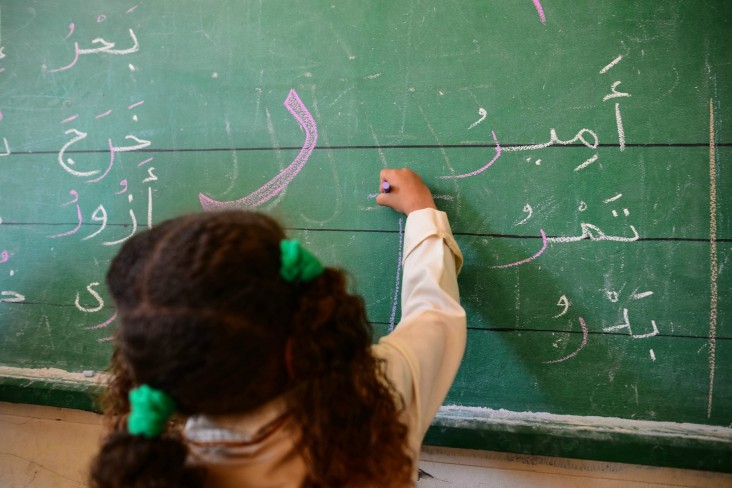Speeches Shim

The Moroccan education system continues to struggle with low student achievement and high dropout rates.
Early literacy is essential to overall academic success. Numerous studies have shown that children with poor reading skills are more likely to fall behind in school, therefore setting the stage for future dropout. While significant reforms have broadened children’s access to primary schooling, Moroccan students still fall far behind in international learning assessments. In 2016, Morocco fourth graders ranked 47th out of 50 participating countries in the Progress in International Reading Literacy Study (PIRLS).
Children with disabilities face even greater challenges to getting an education: most handicapped children do not attend school and those who do cannot attend higher than the sixth grade level. Most teachers are not trained in special education, and therefore are ill-equipped to teach students with diverse needs.
USAID Response
FACTS & FIGURES
- Ministry of National Education, Vocational Training, Higher Education and Scientific Research
- Ministry of Solidarity
- Chemonics International
- Creative Associates International, Inc.
- Institute for Disabilities Research and Training, Inc.
- The Kaizen Company, LLC
A lack of education perpetuates poverty, limits job opportunities, and strains the overall social support system. USAID is working in close partnership with the Ministry of Education to support their ambitious reform efforts by developing an evidence base to design activities that improve reading skills of Moroccan primary school students.
USAID began with a SMALL-SCALE EXPERIMENTATION activity to develop and test the most successful phonics-based reading interventions to improve grade one and two student reading skills in 90 pilot schools. Within one year, the Reading for Success-Small-Scale experimentation (RFS-SSE) activity had a significant impact on both teachers and students.
Based on the positive findings from the experimental phase, USAID is now working with the Ministry of Education to scale up the activity into the NATIONAL PROGRAM FOR READING (NPR), which is being implemented in grades one through four in public schools across the country.
USAID also promoted sign language education and expanded education opportunities for deaf and hard-of-hearing (DHH) students through the IMPROVING DEAF CHILDREN’S READING THROUGH TECHNOLOGY (IDCRT) ACTIVITY, which developed software to help DHH students learn to read and improve their overall learning attainment.
In parallel, USAID supported the Ministry of Education by conducting a joint HUMAN AND INSTITUTIONAL CAPACITY DEVELOPMENT ANALYSIS, which assessed the human capital needs of the Ministry to implement a national effort for improving reading outcomes.
RESULTS ACHIEVED
- Over 330 grades one and two teachers have been trained on the new phonics-based methodology and provided with the instructional material kits.
- Approximately 12,000 grade one and two students under RFS-SSE, and 690,000 students in grades one through four under RFS-NPR, were reached with the new reading instruction method.
- Reading lessons were implemented in all grade one classes in the 2017-2018 school year.
- In the 2019-2020 school year, the Ministry of Education will start the implementation of the new Arabic language curriculum in grades one through four across the country.
- Students taught with the phonics-based approach are learning to read more words faster and have significantly improved reading skills.
- Vocabulary words and stories used in the new USAID-supported reading curricula have been adapted and integrated into the IDCRT software.
- IDCRT software and accompanying IT equipment have been distributed to 10 schools for DHH students across Morocco.

Comment
Make a general inquiry or suggest an improvement.